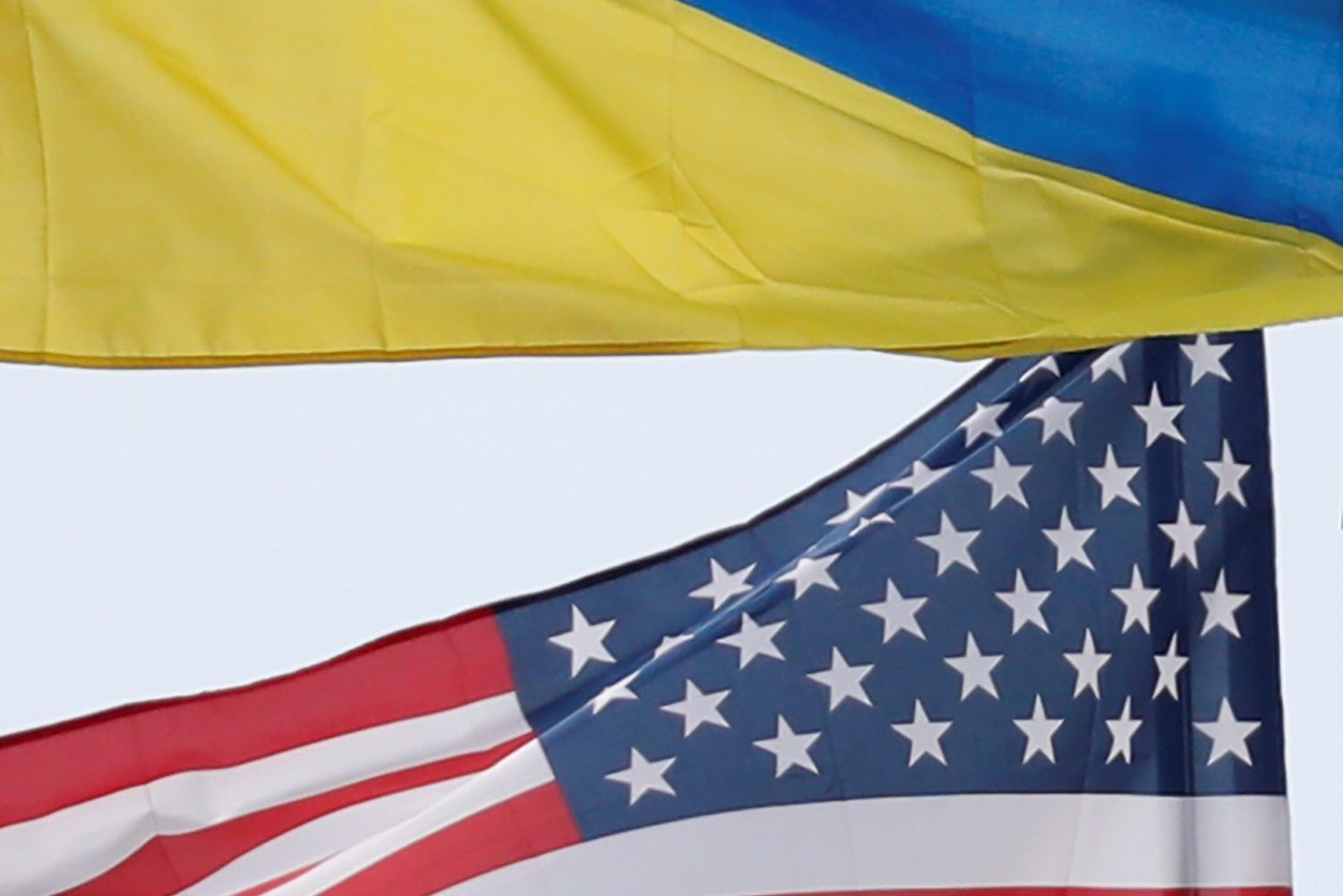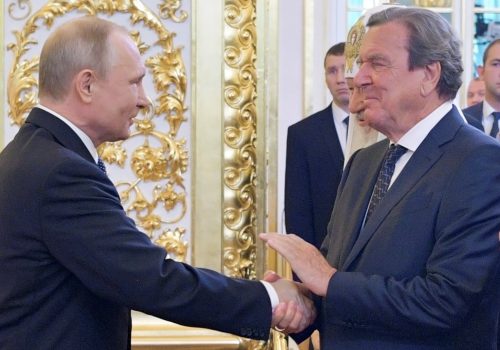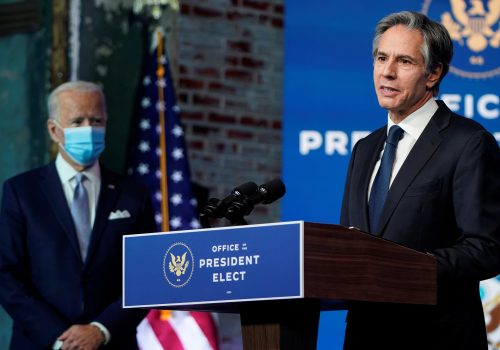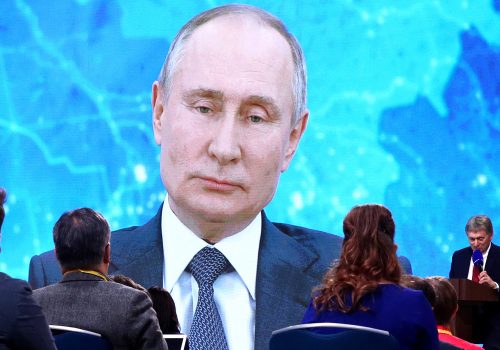Washington has been an essential partner to Kyiv ever since Ukraine achieved independence in 1991. The strategic importance of this bilateral relationship has increased dramatically since 2014 and the onset of the Russo-Ukrainian War, with the US playing a leading role in international efforts to support Ukraine and hold Moscow accountable. However, domestic political developments within the US over the past five years have introduced a degree of turbulence and tension into the relationship between America and Ukraine.
To mark the beginning of the Biden presidency, the Atlantic Council’s Eurasia Center recently published a new issue brief, Biden and Ukraine: A strategy for the new administration. The aim of this report is to provide a road map for how the Biden administration can get relations with Ukraine back on track while encouraging President Volodymyr Zelenskyy to commit to lasting reform in the country and engaging effectively in the peace process to end the ongoing conflict in eastern Ukraine’s Donbas region.
Ambassador John Herbst, director of the Eurasia Center, presented the report’s major findings at a virtual event on March 5 that featured participation from members of the US Congress, Ukrainian government policymakers, and a number of international experts on Ukraine. “The key reason this report is necessary is to put back on the right footing the very important US-Ukraine relationship which was thrown out of kilter during the Trump years,” explained Herbst.
Stay updated
As the world watches the Russian invasion of Ukraine unfold, UkraineAlert delivers the best Atlantic Council expert insight and analysis on Ukraine twice a week directly to your inbox.
Herbst noted that the paper’s most immediate and important recommendation is the need for a phone call between presidents Biden and Zelenskyy.
At the security level, “[the US] should take a more active role in Donbas diplomacy because the Minsk process has been frozen.” Herbst also advocated additional sanctions on Russia and argued that sanctions pressure should increase further “if Moscow’s war continues in the Donbas.”
On the domestic front, Herbst recommended that the Biden administration empower a senior US official as point person for reforms in Ukraine. He noted that the Biden administration has already taken the report authors’ advice to take action against major corrupt figures in Ukraine, sanctioning Ukrainian oligarch Ihor Kolomoisky earlier that day.
Event moderator Carl Bildt, former prime minister and foreign minister of Sweden, then turned to the event’s panelists for their reactions to the report. Ruslan Stefanchuk, first deputy chairperson of the Ukrainian parliament, saw great promise in the report’s recommendations: “If everything is done as recommended by the Atlantic Council, I am convinced that Ukraine will not only restore its borders, but also enter the international arena as a powerful player.”
Steps to carry out the paper’s findings on domestic reform are already underway, according to the deputy head of the Office of the President of Ukraine, Yulia Svyrydenko. Referring to Ukrainian President Volodymyr Zelenskyy’s recent sanctioning of pro-Kremlin Ukrainian oligarch Viktor Medvedchuk, Svyrydenko promised that “this is just the first action [against pro-Russian elements in Ukraine].”
Eurasia Center events

Backing for Ukraine’s security and territorial integrity continues to enjoy overwhelming bipartisan support in the US Congress. “Ukraine is the scrimmage line for liberty on the European continent,” remarked Representative Marcy Kaptur (D-OH), co-chair of the Congressional Ukraine Caucus. “We know that the road to liberty is jagged. But we’re all on it, and we’re on it together. And that makes a difference.”
One of Representative Kaptur’s co-chairs on the Congressional Ukraine Caucus, Representative Brian Fitzpatrick (R-PA), previously served a tour of duty in Ukraine as an FBI agent, where he helped set up the National Anti-Corruption Bureau of Ukraine (NABU). “The US is a beacon of democracy across the world,” Representative Fitzpatrick noted. “Our foreign policy has to reflect that and continue to empower the Ukrainian people as you all seek your own reforms for prosperity, equality, and transparency.”
American foreign policy under President Biden may focus more closely on transatlantic issues than the previous administration, event participants noted. That shift will likely benefit Ukraine, argued Dr. Celeste Wallander, President and CEO of the US-Russia Foundation.
According to Wallander, “the US-Ukraine relationship will be part of the reinvigorated transatlantic strategy under the Biden administration.” Key aspects of this strategy, she noted, “will be the focus on democracy, rule of law, and the fight against corruption. In all those respects, Ukraine is well-positioned to be a strong partner of the United States.”
Andrew D’Anieri is a Program Assistant at the Atlantic Council’s Eurasia Center. The Eurasia Center co-hosted the online launch of “Biden and Ukraine: A strategy for the new administration,” together with its partners the Victor Pinchuk Foundation and Yalta European Strategy.
Further reading
The views expressed in UkraineAlert are solely those of the authors and do not necessarily reflect the views of the Atlantic Council, its staff, or its supporters.

The Eurasia Center’s mission is to enhance transatlantic cooperation in promoting stability, democratic values and prosperity in Eurasia, from Eastern Europe and Turkey in the West to the Caucasus, Russia and Central Asia in the East.
Follow us on social media
and support our work
Image: Ukrainian and US flags fly in central Kyiv, Ukraine. (REUTERS/Valentyn Ogirenko)




